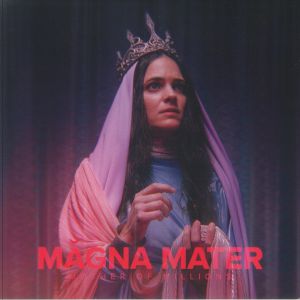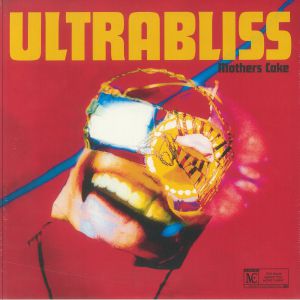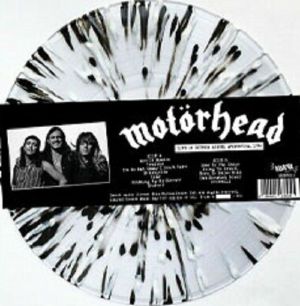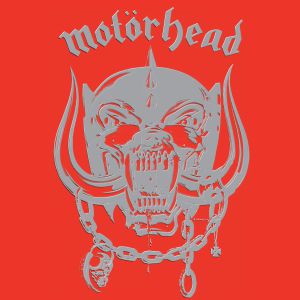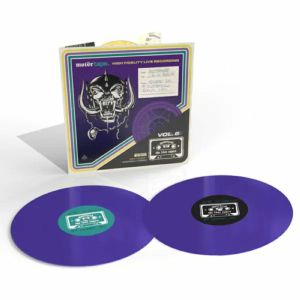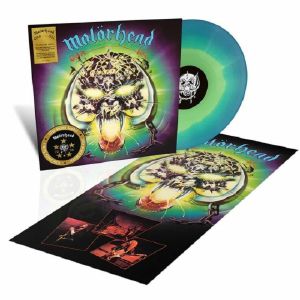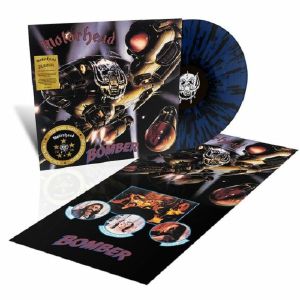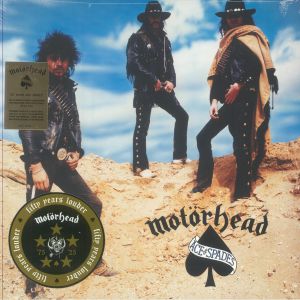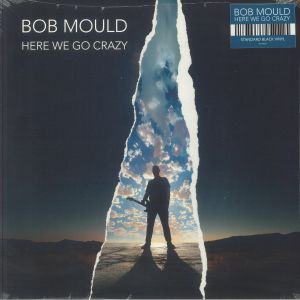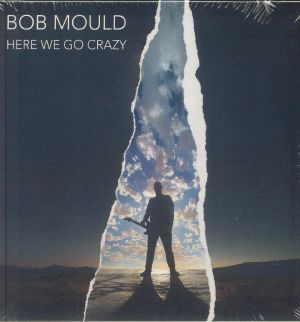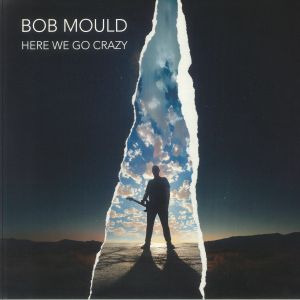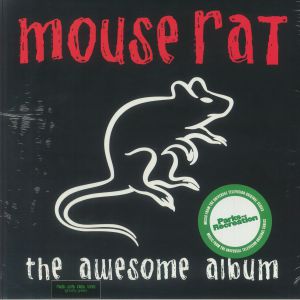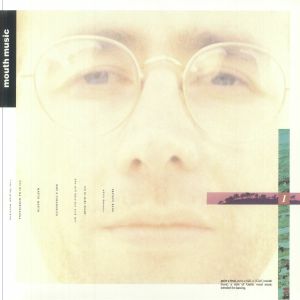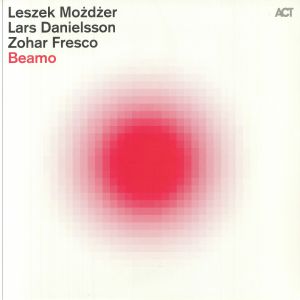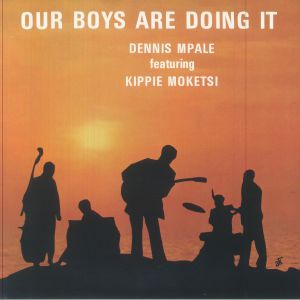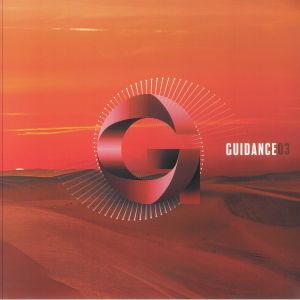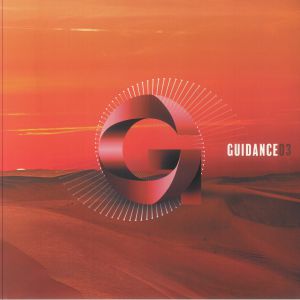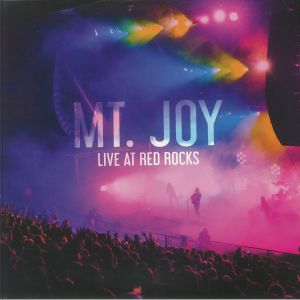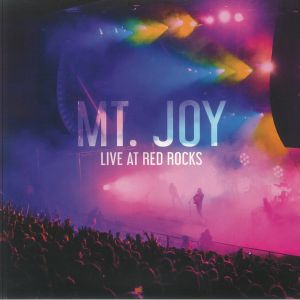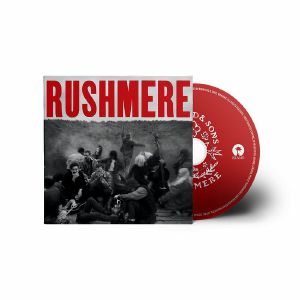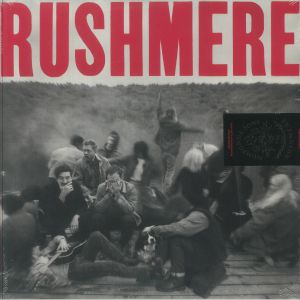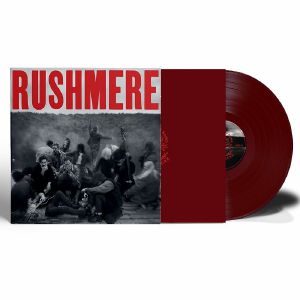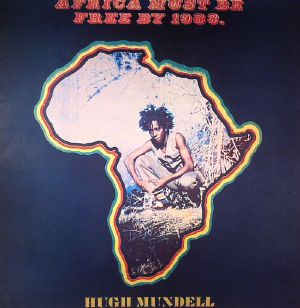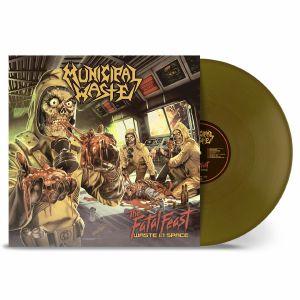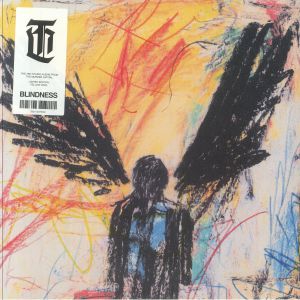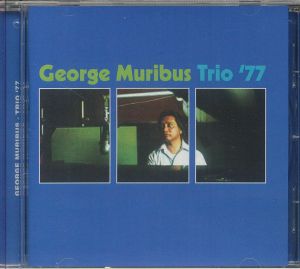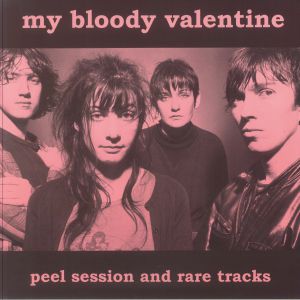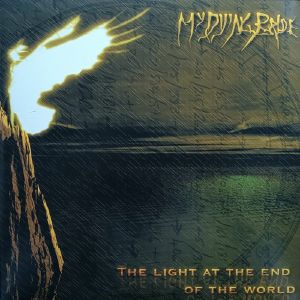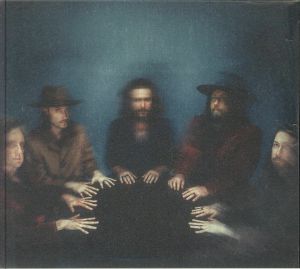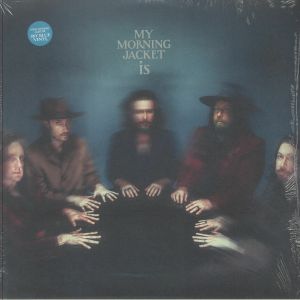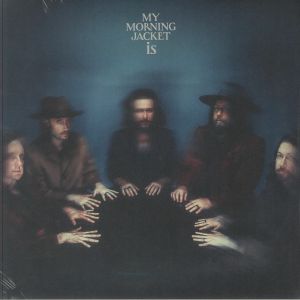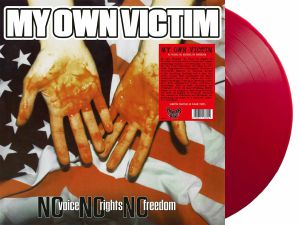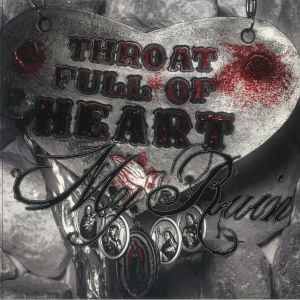Filter
Stock
Equipment
Release Title
Price
Tags
Back catalogue: All genres
Juno's full catalogue of All genres
Álbumes
in stock $28.86
in stock $24.81
in stock $28.32
Live In Buenos Aires Argentina 1994 (Record Store Day RSD 2025) (limited numbered black white & grey splattered vinyl LP) (1 per customer)
Cat: RRSCV 011. Rel: 19 Apr 25
Metal
in stock $25.26
Review: Originally released in 1977, if there's a rock or metal-oriented album that requires little to no introduction, it's the self-titled debut from Motorhead, welcoming the unsuspecting masses to the blistering balls to the wall ferocity that was Lemmy (bass/vocals), Phil Taylor (guitar) and Eddie Clarke (drums). Complete with a silver hot foil replication of Joe Petagno's original Motorhead logo on a vibrant red background, this 2xLP includes the original full-length boasting classics such as 'White Line Fever', 'Violator' and 'Keep Us On The Road', as well as a bonus disc featuring the Beer Drinkers & Hell Raisers EP, along with newly mixed and alternative versions of bangers like 'Motorhead', 'The Watcher' and 'Keep Us On The Road'. Complete with sleeve notes by Ted Carroll, taking the reader through the story of how Chiswick Records managed to scrape together enough money to fund the recording of what would eventually enter both the label and band into the annals of rock history.
… Read more in stock $37.20
The Lost Tapes Vol 6: Live In Berlin (Record Store Day RSD 2025) (gatefold purple vinyl 2xLP) (1 per customer)
Cat: 964133 661. Rel: 19 Apr 25
Metal
in stock $38.59
Overkill (50th Anniversary Edition) (limited blue & green vinyl LP + poster)
Cat: 964126 931. Rel: 27 Feb 25
Metal
Review: The second studio album from metal behemoths Motorhead saw the trio - in their classic line up form of Lemmy (bass, vocals), Fast Eddie Clarke on guitar and Philthy Phil Taylor on drums - truly hit their stride. In probabality, this LP, originally released in 1979, produced the biggest crop of classics of any in their career, with 'No Class', 'Capricorn', 'Stay Clean' and 'Metropolis' all joining the title track in the ranks of songs that would remain staples of their live sets for literally deacdes to come. The year is significant, as Overkill marks the band harnessing the anarchic overtones of punk to their metal power, with plenty of lyrical attitude added to the sharp riffing, 747-like basslines and double kick drum onslaught. This reissue restores the original tracklisting without the frills and extras of the 2005 remaster, but when it's all as shitkicking as this, why mess?!
… Read more in stock $29.16
Review: Boom! The year of 1979 saw not one but two classic Motorhead albums being dropped like atomic bombs on an unsuspecting but appreciative public. After the Overkill LP really put the 'Head on the metal map earlier in the year, Bomber consolidated their position as, to quote Spinal Tap's slightly tongue in cheek compliment, one of Britain's loudest bands. In fact, their show at Port Vale in 1981 would appear in the Guinness Book of Records as the loudest ever. Of course, there is much more to them than sheer volume and firepower though. Frontman and bassist Lemmy had cut his teeth as a roadie for Jimi Hendrix and tracks like 'Lawman' follow a similar lineage of blending heavy, psychedelic blues with a genuinely groovy funkiness. When they're on top form the trio of Lemmy, guitarist Fast Eddie and Phil Taylor are a finely trained crack squad, pulling some deft musical moves and unexpected about turns, too. Virtuosity neatly disguised as utter barbarianism - just how we like it. The Bomb!
… Read more in stock $29.16
Ace Of Spades (50th Anniversary Edition) (half speed remastered) (limited blue & white vinyl LP + poster)
Cat: 964126 911. Rel: 27 Feb 25
Metal
Review: Fans will endlessly debate the creative high watermark of Motorhead's lengthy career, but there's no doubt that this album, their fourth, was the commercial peak of the trio. Originally released in 1980, with a wonderfuly spaghetti western cover shot doubtless shot in Camber Sands or somewhere similar, it reached number four in the UKalbum chart, at a time when physical sales were pretty close to an all time high. The album's title track is of course their ultimate calling card, from its iconic riff to its lyrical celebration of gambling one of the ultimate metaphors for a - or even the - rock and roll lifestyle. But its greay production job by Vic Maile means the band sound brighter and sharper here than ever before, the sessions doubtless seriously waking up the sleepy Herfordshire town of Rickmansworth where it was recorded. There's also a slew of memorable songs, naturally enough, from 'Love Me Like A Reptile' - who says romance is dead - to '(We Are) The Road Crew', the impossibly speedy two minute thrashout 'Bite The Bullet' and 'The Chase Is Better Than The Catch'. Gambling's for fools, as the song says, but this one is an odds on dead cert.
… Read more in stock $29.16
in stock $26.37
in stock $14.16
Here We Go Crazy (black white & blue vinyl LP (indie exclusive))
Cat: 964140 181. Rel: 06 Mar 25
Indie/Alternative
in stock $34.42
in stock $22.20
in stock $24.16
Hometime (reissue) (Record Store Day RSD 2025) (limited numbered gold vinyl LP in spot-varnished sleeve) (1 per customer)
Cat: 711297 512588. Rel: 19 Apr 25
Pop
in stock $35.52
in stock $28.04
Cat: LPWABB 202. Rel: 14 Apr 25
Jazz
Review: Dennis Mpale had become a key figure in South African jazz by the time the mid-70s swung around having already had a career spanning some pivotal moments in the genre's evolution. From leading the trumpet section in Chris McGregor's Castle Lager Big Band to co-founding the jazz fusion group Roots, Mpale was instrumental in shaping jazz and in 1977, he released Our Boys Are Doing It-his solo debut. It was produced by Rashid Vally and issued on Mercury as a bold response to global trends which embraced township bump jive and featured legends like Kippie Moketsi. We Are Busy Bodies now reissues this essential title from analogue masters so it sounds superb as a key bit of jazz history.
… Read more in stock $27.21
Saving Seamus Ryan (reissue) (limited gatefold red splattered vinyl 2xLP)
Cat: FLY 6709LP. Rel: 20 Mar 25
Hip Hop/R&B
in stock $46.08
Dark Texture (clear & orange vinyl 2xLP in spot-varnished sleeve)
Cat: GUIDANCE 03SE. Rel: 14 Mar 25
Drum And Bass/Jungle
in stock $34.70
Dark Textures (double 12" in spot-varnished sleeve)
Cat: GUIDANCE 03. Rel: 19 Mar 25
Drum And Bass/Jungle
in stock $31.65
in stock $25.26
in stock $26.93
Might As Well Play Another One (limited translucent blue vinyl LP + insert)
Cat: BR 069. Rel: 11 Apr 25
Indie/Alternative
in stock $27.21
in stock $13.05
in stock $29.97
Rushmere (gatefold 'bloodshot' red vinyl LP (indie exclusive))
Cat: 752762 2. Rel: 27 Mar 25
Folk/Americana
Review: The long-awaited follow up to 2018's Delta, London indie-folk megastars Mumford & Sons return after a seven-year gap (their longest between releases yet) to chart a course back to their original path. Titled Rushmere after a pond located at Wimbledon Common in London, where the band was first formed and music was conceived, their fifth LP marks their first as a trio, following the departure of Winston Marshall in 2021 (who for some bizarre reason opted to allow his politics to prioritise his success and now makes appearances on Fox News). Where the members had gone to lengths previously to shy away from their folk-pop stylings in search of a "new sound", here it's evident that Marcus Mumford and his cohorts have finally become comfortable with their position within the modern music landscape, dusting off the obligatory banjo for the triumphantly anthemic title-track, while the melancholic 'Where It Belongs' utilises weaving, minimalist acoustic melodies and deeply affecting vocal harmonies to conjure a sense of quiet acceptance. In short, this is the most Mumford & Sons the troupe have sounded since their acclaimed 2009 debut Sigh No More.
… Read more in stock $29.16
Cat: LP 143713 (B-STOCK). Rel: 01 Jan 90
Roots/Lovers Rock
B-STOCK: Sleeve damaged but otherwise in excellent condition
in stock $17.20
in stock $30.54
Review: The Murder Capital sit at the forefront of a new wave of indie that's sprung up out of the Dublin scene after Gilla Band smashed the door down. The band are no longer Dublin-based, but spread out across Ireland, London and Berlin. They grouped together, though, for the recording of their third album in LA, steered by wise Grammy-winning producer John Congleton. The album has this frenetic sensibility running through it and it's what makes them such a powerhouse live act. 'The Fall' is guttural, raw, widescreen and teeming with ambition; 'Words Lost Meaning' is dirtier and wouldn't be amiss in The Kills' set with its sulky, fuzz-laden bass riff offering plenty of swagger. While 'Can't Pretend To Know' is more Nine Inch Nails with noisy tremolo picking on the guitar offering a grandiose backdrop for the charismatic lead vocal. They've leant into their mainstream aspirations here and sound ready to take on the world.
… Read more in stock $33.03
in stock $16.94
MURO / VARIOUS
Diggin' Victor: Deep Into The Vaults Of Japanese Fusion/AOR For Vinyl Selected By Muro (2xLP + insert with obi-strip)
Cat: FWRF 012. Rel: 08 Apr 25
Funk
Review: Renowned DJ and selector MURO is a Jedi-level compiler and this new collection of his delves into Victor's extensive archives to spotlight a world of Japanese jazz, fusion and AOR. It take sin plenty of internationally known names like Yasuko Agawa on the sunset sounds of 'L.A. Night', Sadistics who offers the more psyched out guitar leans of 'On the Seashore', Yuji Ohno's neo-Balaeric bliss-out 'The Dawn of Seychells' and Hiroshi Fukumura's soul soothing Ry Ayres-style melodies on 'White Clouds.' These are luxurious sounds and timeless tracks with MURO's signature funky perspective making this a brillaint choice for brighter, warmer days.
… Read moreIntérprete: Mukatsuku Records Chart
in stock $68.01
in stock $42.75
Cat: MBVPEEL. Rel: 27 Feb 25
Indie/Alternative
in stock $21.09
The Angel & The Dark River (30th Anniversary Edition) (half-speed remastered) (limited pearl "sunrise" vinyl LP in debossed sleeve)
Cat: VILELP 1205. Rel: 17 Apr 25
Metal
in stock $28.04
in stock $32.49
in stock $32.19
in stock $11.94
Review: There's something refreshing about an album press release that goes out of its way to tell you a band has been around for 25 years, a quarter century no less, building a significant cult following in that time, but have also gone out of their way to sustain "all the curiosity and creative hunger of their very earliest days." So - hats off to Louisville, Kentucky five-piece, My Morning Jacket. The band's first album in four years is their most refined and regal in sound, but that needs to be understood in wider context. My Morning Jacket are known for heavy rock out shows, infused with blues, rockabilly, stoner, sludge metal and Americana. Raw is what they do, and the sense of them just turning up at the studio and getting down and dirty to record another stunner is alive and well here. They're just not afraid to flash a little production spit and polish in the process.
… Read more in stock $33.30
in stock $29.70
in stock $34.42
in stock $20.27
Throat Full Of Heart (reissue) (limited metallic silver vinyl LP + insert)
Cat: BRUA 17171. Rel: 27 Mar 25
Metal
in stock $42.75
in stock $27.76
Reeling (B-STOCK) (limited transparent red vinyl LP + insert)
Cat: 386661 3 (B-STOCK). Rel: 01 Jan 90
Indie/Alternative
B-STOCK: Sleeve damaged but otherwise in excellent condition
in stock $21.37
Review: Label affiliates Mytron and Zongamin make a combined return to the ever-on-point Canadian stable Multi Kulti, delivering an extended selection of typically off-kilter, genre-bending sonic mastery. In what appears to be a match made in the leftfield heavens, the duo join forces to explore dance-ish music's outer reaches, blending tribal motifs with 8-bit sampling and all manner of wonkiness. From the blissful bells of Conjunction With Reality to the bass-heavy throb of GHX, there is unsurprisingly plenty to savour here. Opening cut '08932168' blends enchanting lead melodies with rolling polyrhythms and dubbed-out effects before the equatorial percussion of 'Calliope Omniglot' makes way for the wiggy atmospherics of the collection's title track. Highly recommended.
… Read moreIntérprete: Alexis Le-Tan
in stock $24.16
Review: In the right circles,, Martin O'Donnell and Michael Savatori are living legends. Working with the iconic US video game company Bungie Inc, the pair put their names on the map - or maybe maps? - by creating soundtracks to a number of high profile titles, either as a duo or individually. O'Donnell is arguably the better known, or at least has the bigger online persona, but both composers deserve plenty of credit. Halo: Combat Evolved was the first title in what is now a huge and genre-defining first person shooter franchise, and the score reflects the emergence of video game music as an integral part of the on-screen action. O'Donnell and Savatori's efforts to ensure instrumentation dramatically changed with events in the game, which is by nature relatively non-linear, was a revelation. While their efforts to separate these into individual suites foresaw the rise of playable stories as films in their own right.
… Read more in stock $45.81
Review: It's been a long time since Halo: Combat Evolved revolutionised the word of first-person shooter video games. Graphically superior to anything that had come before it, the franchise also benefits from a spectacularly gripping storyline in which humans are outgunned and out-teched by a ruthless and uncompromising alliance of superiorly equipped alien races united as The Covenant. The titular Halo adds a kind of Prometheus air of uncertainty, as nobody really knows what it does until attempts to activate the galaxy-destroying weapon reveal something worse than death - a parasitic breed called the Flood. If all that was enough to blow everyone away in 2001, 2004 brought us to a whole new level of immersion in this future scape. Just like its predecessor, a big part of the impact was the visionary score by gaming soundtrack masters Martin O'Donnell and Michael Savatori. Now here it is in all its Gregorian chanting glory.
… Read more in stock $64.13
Halo Original Trilogy Soundtrack Collection (Soundtrack) (heavyweight vinyl 8xLP box set)
Cat: LMLP 235. Rel: 03 Apr 25
Soundtracks
Review: The full 83 track suite from the original Halo trilogy of video games is here, bringing you an exemplary score befitting of one of the most acclaimed Arcadian future combat shooter game series in the world. Now you can figuratively "don" your very own sonic Spartan supersoldier suit, as the game's trademark musical motifs - mystical Gregorian choral chants, missionary orchestral movements, gloried verging-on-prog upswells and downturns - are laid in pristine electronica-augmented fashion, by composers Martin O'Donnell, Michael Salvatori and C Paul Johnson. The midpoint of the record marks a highlight, where the Halo 2 soundtrack heard a long list of A-list musician collaborators, marking a heavy metal and nu-metal sojourn.
… Read more in stock $173.78
Review: Laced Records and Halo Studios partner up to bring the epic soundtracks of the original Halo trilogy to vinyl for the first time, remastering and revamping 83 original scores from Halo: Combat Evolved, Halo 2, and Halo 3. the music that defined a franchise is thus ethered in perpetuity. Weaving orchestral elements, prog rock, drum corps marches, and heavy metal, Halo presents a perfect bottling of angst and militancy; owing to its popularity with a certain teen gamer cohort, Halo 2's score especially made history as the first video game OST to chart on the Billboard 200. Now, each soundtrack is presented in its own sleeve with custom artwork, and comes in a collector's box adorned with a debossed Halo logo and silver laminate finish.
… Read more in stock $64.13
Niccolo PAGANINI / MARIA DUENAS / VARIOUS
Paganini's Iconic 24 Caprices (gatefold 2xLP + CD + insert)
Cat: 486571 1. Rel: 06 Mar 25
Classical
in stock $39.15

 USD
USD






